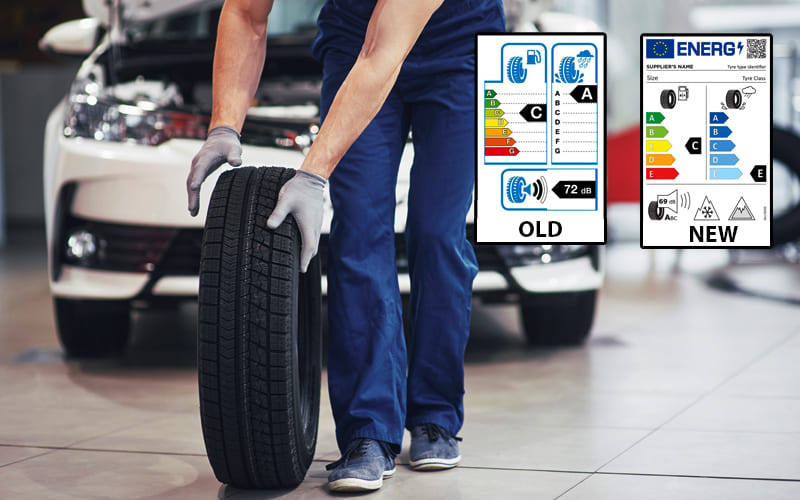Are you looking for Tyre Labelling for your vehicle?

Car tyre labelling has been one of the crucial regulations that was enforced by the EU from 2012 to spread awareness about car tyre safety. With a series of new updates on the mandate in 2018, the practice has been more regularised and now stands as a compulsory requirement for selling tyres in the United Kingdoms. Additionally, the new rules, as declared in 2018, will also require labels - concerning snow performance and mileage of a tyre.
In this regards, it becomes essential that car owners avail reliable and authorised garages to purchase new car tyres. At Chichester Tyre & Brake Centre, we have a huge inventory of tyres that can cater to a varied season and terrain specific requirements. Furthermore, to adhere to the rules of the UK government, all the tyres in our unit have highly rated EU labels and therefore ensure the optimal safety standards of your car.
About Tyre Labelling in detail
Currently, tyre labelling comprises three major areas of assessment related to fuel efficiency, wet grip and noise emission. This entire rating system categorises a tyre’s performance based on these three aspects and lets you know the efficiency of a tyre. A detailed explanation of tyre labelling is discussed below to help car owners to make an informed decision before they buy new tyres.
Fuel efficiency
The fuel efficiency of a tyre determines the amount of fuel per mile utilised by a vehicle while driving. Tyres account for 20% of the fuel consumption of a car. Hence, it is crucial to choose the most efficient tyres for your vehicle. Under EU rating, the label for fuel efficiency of a tyre ranges from A to G and comes with respective colour codes.
Label A ( red ) – Indicates high fuel usage.
Label G ( Green) – Indicates best fuel efficiency.
Noise efficiency
Noise efficiency is one of the crucial factors to ensure a comfortable driving experience. The tyre labelling for noise efficiency is majorly divided into 3 sound waves bars explained below.
1 wave bar = Indicates the tyre is below 3db or below the future EU legislation.
2 wave bar = Shows the noise emission is below 3db and is moderate enough to meet the current and future EU legislation.
3 wave bar= This indicates that a tyre is above the EU limit in respect to noise emission and will fail to meet the future regulations.
Wet grip
Wet grip determines a tyre’s braking performance on a wet road which is an essential factor to ensure improved car safety and handling.
Under the EU labelling practice, the wet grip of a tyre is assessed under 3 major scales ranging from A to G. The difference of the stopping distance between each of the three letters is 2.5 meters. Hence, the less the braking distance the more efficient a tyre is.
For example
An ‘A’ rated tyre stops at a distance of 18metres to that of an F rated tyre and therefore indicates better car handling safety on wet roads.
Are you looking for top-quality tyres near me?
Search no further and visit Chichester Tyre & Brake Centre for superior quality tyres from iconic manufacturers. Call us today for further information.

